Renowned composer returns from Hollywood to inspire juniors
- Published
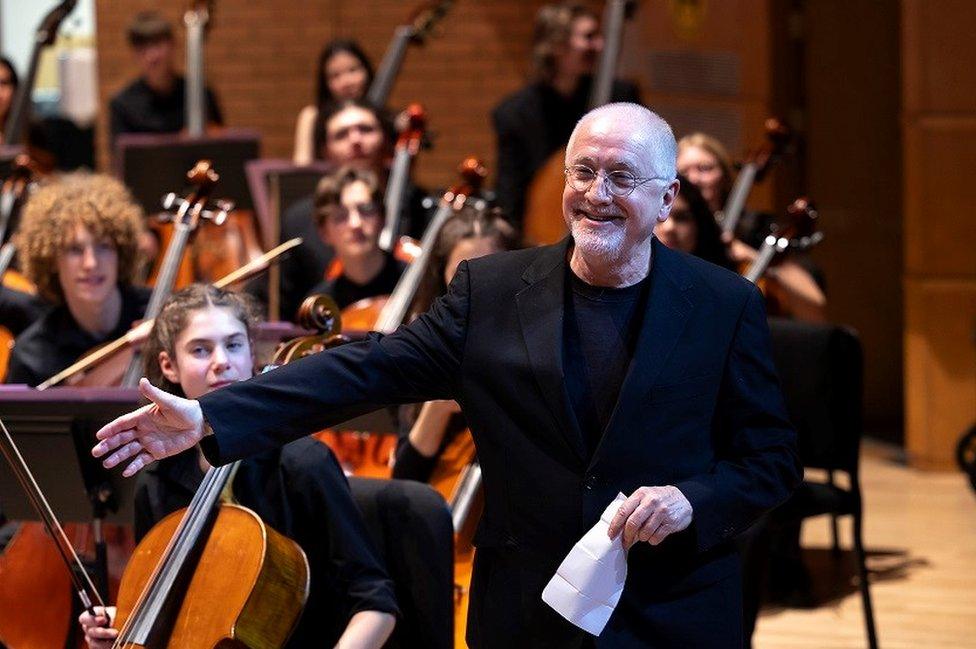
Composer Patrick Doyle has been named patron of the Junior Conservatoire of Music at Scotland's national conservatoire
There are few composers who can say they've created music for Hollywood - and for kings.
And few who would return to their roots to encourage the next generation.
But Patrick Doyle says he owes his 50-year career to the family, friends and teachers who persuaded him to attend junior classes at what was then the Royal Scottish Academy of Music and Drama (RSAMD) in Glasgow, now the national conservatoire.
He has since scored music for more than 60 major films.
Disney's Brave, Marvel's Thor and Harry Potter and the Goblet of Fire are just a handful of his high-profile projects.
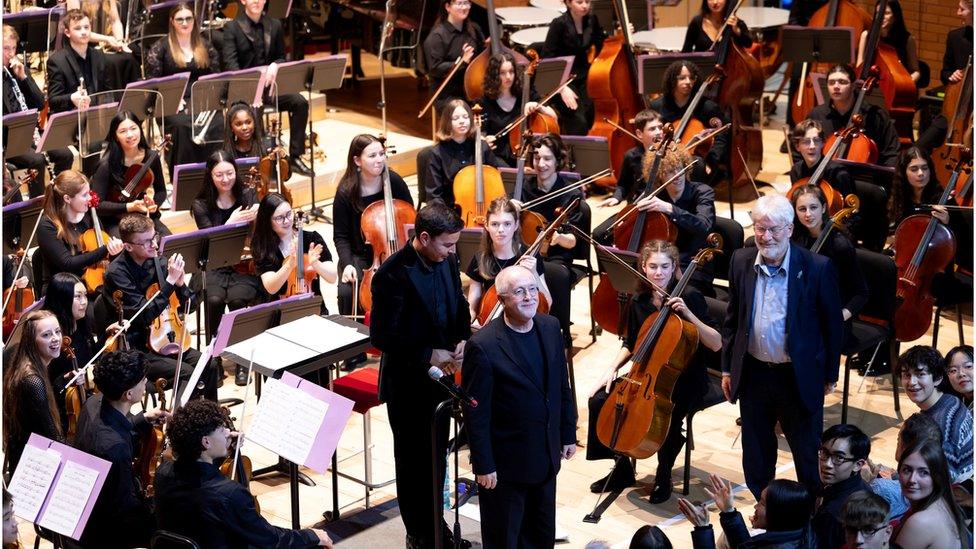
Patrick Doyle returned to Glasgow to visit the next generation of musicians
Speaking about the conservatoire, he says: "I love the place.
"It was the foundation of my musical journey. To be back here was never part of my ambition in life but it's an enormous honour."
This week he was named patron of the Junior Conservatoire of Music at Scotland's national conservatoire, joining violinist Nicola Benedetti CBE.
And he was keen to meet and work with the young people making music there today.
"I come from a very musical household," Patrick says.
"I was brought up with radio and television, black-and-white TV, watching clips of Fantasia. I fell in love with music and drama, but there was no-one in theatre. There was no-one in the film industry so I wasn't sure how to go about getting into that business."
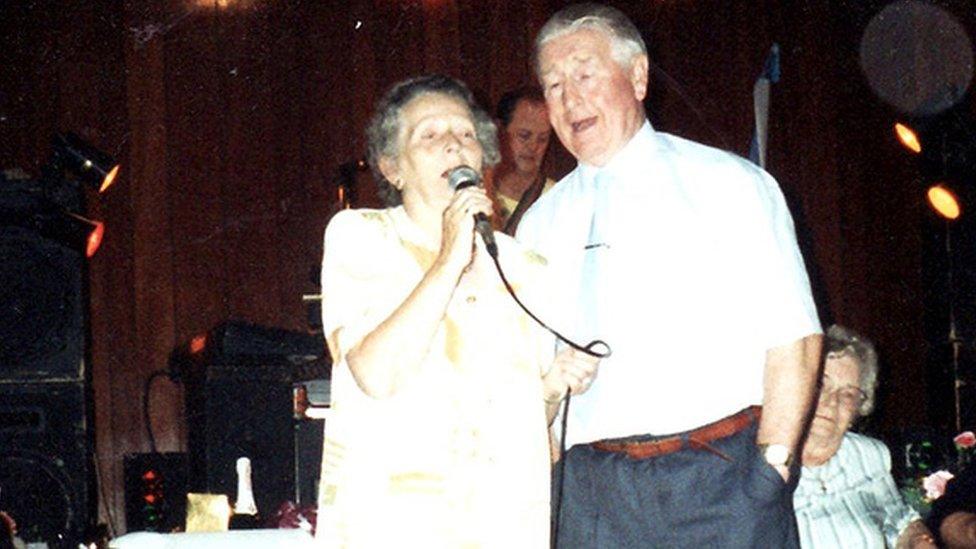
Patrick Doyle came from a musical household and says his parents - Sadie and Pat Doyle - "were both amazing singers"
Patrick played tuba in the Lanarkshire Youth Orchestra and his school's brass band and was encouraged to pursue his musical ambitions by his teacher.
"My piano teacher, Edith Ferguson, was so enthusiastic about any young person's musical potential, and inspired hundreds of young musicians across Lanarkshire," he says.
"I believe peripatetic teaching and access to music from a young age is vital. A younger person can thrive through music. It encourages creative thinking, healthy expression, and self-discipline."
"Youth orchestras, such as the RCS Juniors, are a fantastic social experience. They offer an opportunity to make new friends, forge important bonds through music and gain exceptional life experience."
Patrick graduated from the RSAMD in 1975 and worked initially as a teacher, and an actor.
In 1978, he was cast in the John Byrne play, The Slab Boys, alongside Robbie Coltrane, and Billy McColl. His role as Hector involved him climbing through a window, and sustaining an injured knee.
"No amount of stage blood worked," he says. "It was really unconvincing, and then John Byrne appeared with his paint box and began to mix up a "wound". The cast and the audience looked really alarmed when I arrived onstage with this bloodied knee!"
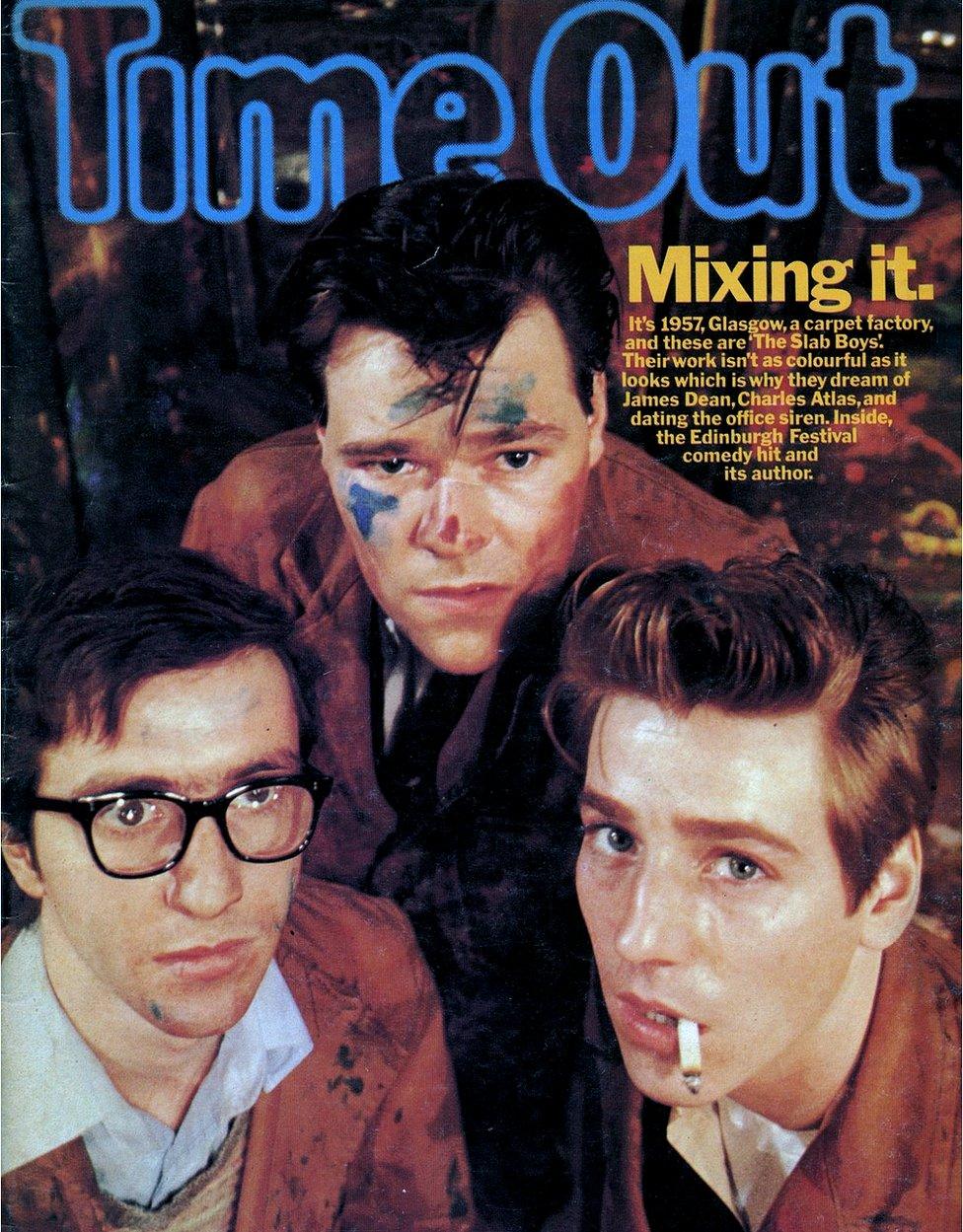
Patrick Doyle (left) co-starred in John Byrne's seminal work, The Slab Boys, which premiered at the Traverse Theatre on 6 April 1978, directed by David Hayman
His acting roles continued - in Chariots of Fire in 1981 - and even helped when he began to push towards a career as a composer.
In 1987, he joined Sir Kenneth Branagh's Renaissance Theatre Company as composer and musical director. One of his first shows was a staging of Twelfth Night, starring Richard Briers, in which he led the music from the stage.
"There was a lamp on the top of the piano, shining on my music. The play opens with a robust piece of orchestral music representing a storm and I looked up and realised the lamp was moving towards me," he recalls.
"It was like a Sam Peckinpah film, everything was moving in slow motion.
"The lamp fell off the piano. I grabbed it, and there was a deathly silence. I instinctively turned round and said to the audience has anyone seen page one? And the place just erupted into laughter."
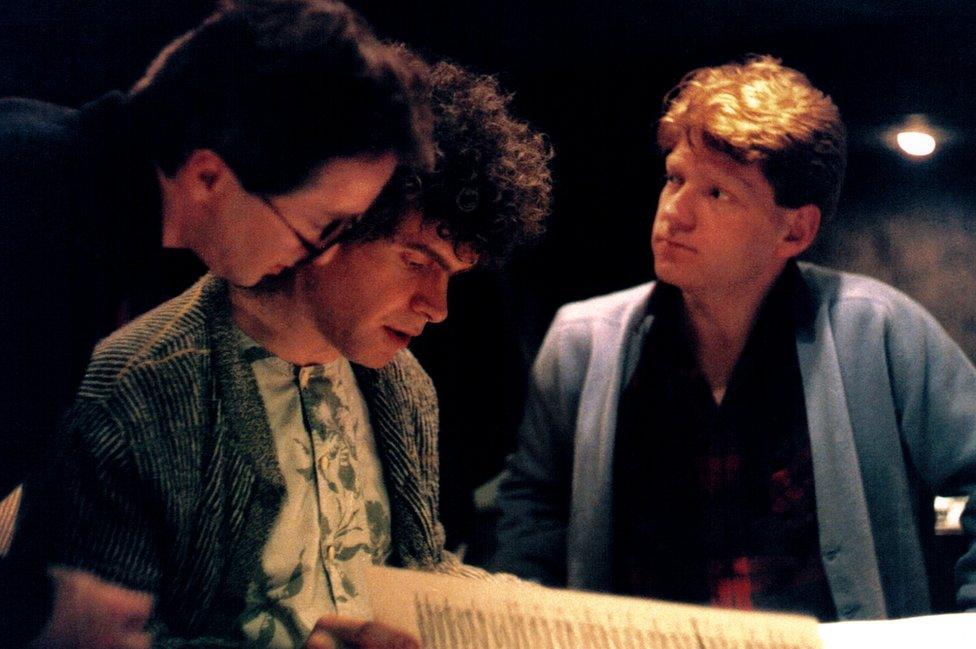
Patrick Doyle, Sir Simon Rattle and Sir Kenneth Branagh study the score for Henry V, Doyle's first film project
Among those laughing was the then Prince of Wales, who came backstage afterwards.
"We were introduced to Prince Charles and he said 'that was very funny, you should do that every night.'
"I think I handled it through my experience in theatre as a performer so my career didn't go down the plug hole. Like they say, I went from 0 to hero."
The moment cemented two important relationships, one with Kenneth Branagh with whom he collaborated on a number of films including Much Ado About Nothing, Mary Shelley's Frankenstein, Hamlet, As You Like It, Cinderella and, most recently, both Murder on the Orient Express and Death on the Nile.
As in that first production, he often featured as a performer like Henry V where he sang his own composition Non Nobis Domine onscreen on the battle field. He went on to win an Ivor Novello award for the score.
He was awarded the Lifetime Achievement Award from both The World Soundtrack Awards and Scottish Bafta, the Henry Mancini Award from ASCAP and the PRS Award for Extraordinary Achievement in Music.
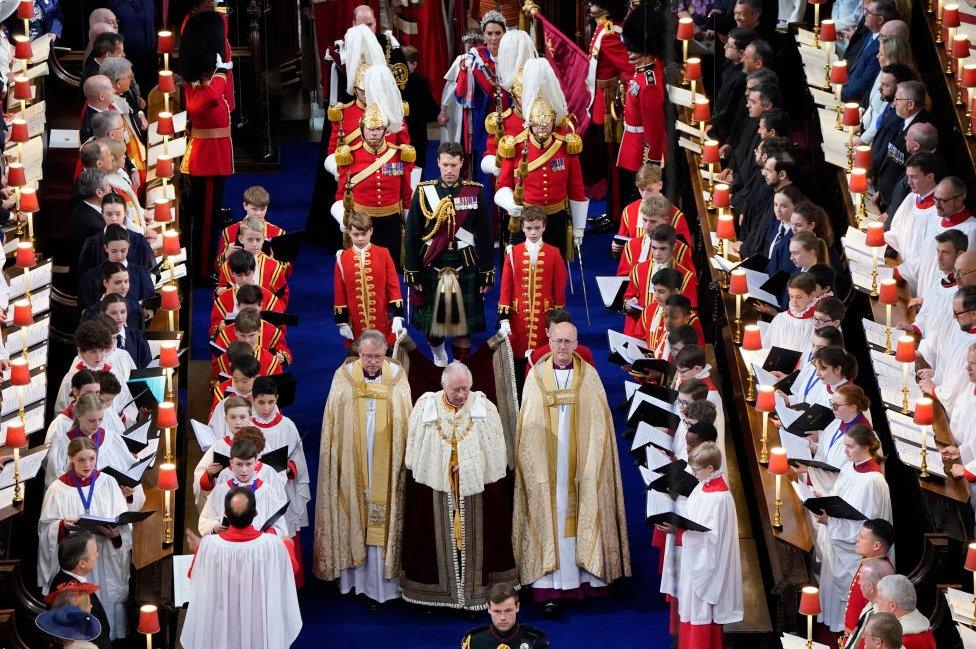
Doyle was asked to create a march for the Coronation of King Charles III
And Henry the Fifth wasn't the only king he celebrated in music. Having kept in touch with Prince Charles, who commissioned him to write a piece of music for his grandmother, he was thrilled to be asked to create a march for the Coronation of King Charles III.
"The call came a year ago from the palace asking me to consider the Coronation March and you think of all those people before you, Walton, Purcell and Handel. But it was an enormous honour, probably the biggest challenge of my career. I was delighted and thrilled to do it."
One of the first questions he was asked by students at the Junior Conservatoire was how a composer used to working with pictures, managed to create a piece of music ahead of the event.
"I found it a challenge but also an inspiration," he says.
"There's no such thing as a blank screen. You just create your own story, your own images so I made an overture summing up the various stages of Prince Charles and King Charles, the man I knew over 33 years."
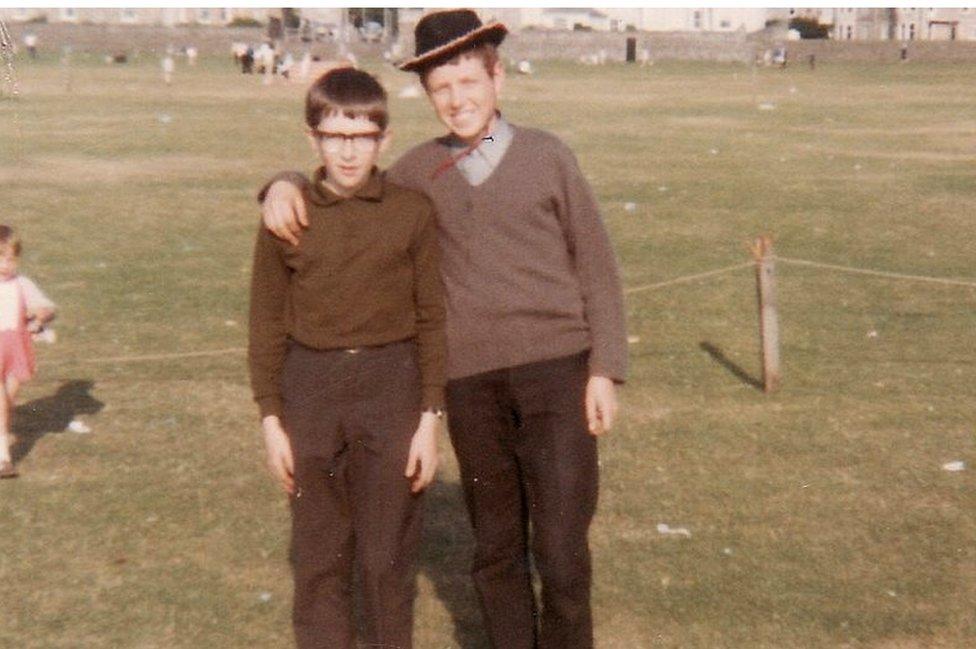
Patrick Doyle age 12 with his friend John
He and his wife Lesley - who he met at the RSAMD and went on to become a costume designer - attended the ceremony in Westminster Abbey and heard the Coronation March broadcast around the world. It's been quite a year for the composer, who celebrated his 70th birthday in April. And his return to Glasgow has been an emotional one.
"I constantly cast my mind back to getting the bus in every Saturday morning, leaping out of my bed," he says.
"I still feel the same passion, the same energy, the same enthusiasm.
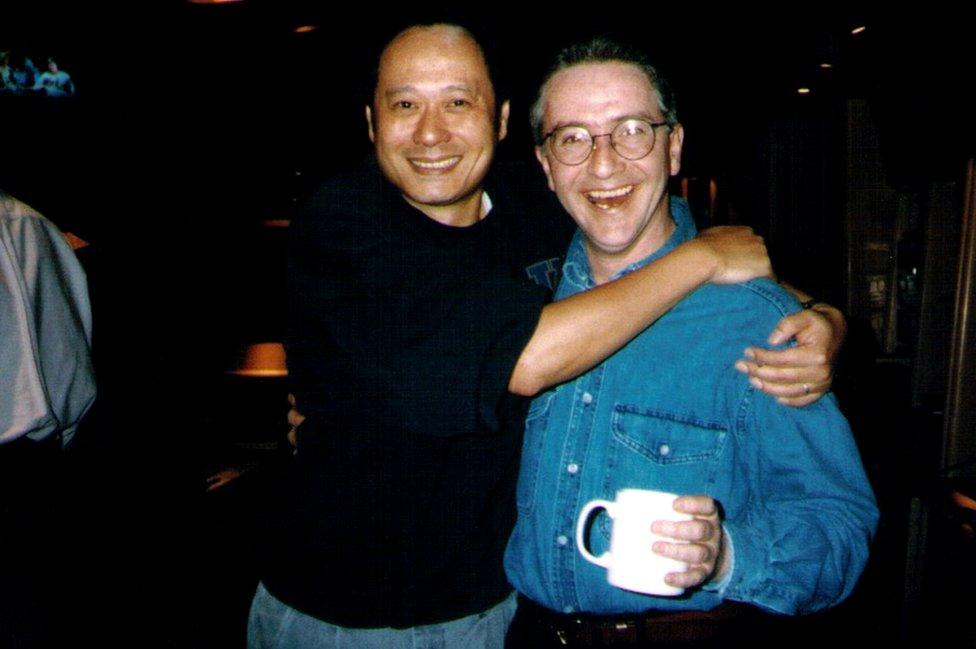
Patrick Doyle and Ang Lee, director of Sense & Sensibility and Crouching Tiger Hidden Dragon
The images come flashing by like ripple dissolves in a film.
I know what fun it is, and I know what is possible," he says.
"My job as a patron is to inspire these people to go forward into the future. I'm from Birkenshaw. I'm from Uddingston. John Williams is from a street in LA. Everyone is from somewhere.
"You can be anywhere you want if you want to be there, it's just another surface of the earth."